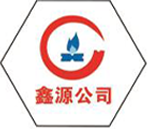
Nov . 10, 2024 08:16
Back to list
Exploring the Benefits of Gas Filters in Air Quality Management
Understanding Gas Filters A Key Component in Air Quality Management
In the contemporary industrial landscape, maintaining air quality is of paramount importance. With increasing pollution levels and strict regulatory frameworks, technologies such as gas filters have emerged as vital tools in managing and mitigating harmful emissions. This article delves into the concept of gas filters, their working principles, types, applications, and their significance in promoting a healthier environment.
What are Gas Filters?
Gas filters are specialized devices designed to remove gaseous contaminants from the air. They function by allowing air to pass through them while trapping or neutralizing unwanted gases, thereby improving overall air quality. Common applications of gas filters include industrial facilities, chemical plants, and exhaust systems in various sectors. By incorporating these filters, businesses can comply with environmental regulations while ensuring a safer workplace for employees.
How Gas Filters Work
Gas filters operate using several techniques to capture or convert harmful gases. The primary methods include adsorption, absorption, and catalytic conversion.
1. Adsorption This process involves the adhesion of gas molecules to the surface of a solid material known as an adsorbent. Carbon-based materials, such as activated carbon, are widely used for their high surface area and ability to capture various volatile organic compounds (VOCs) and odors. When air passes through the filter, gaseous pollutants stick to the surface of the adsorbent, thereby purifying the air.
2. Absorption In contrast to adsorption, absorption involves the interaction between gas molecules and a liquid solution. Gas filters that utilize absorption typically contain a liquid medium that reacts with and neutralizes harmful gases. For instance, scrubbers are often employed in industrial applications to capture acidic gases like sulfur dioxide and hydrogen chloride.
3. Catalytic Conversion Some gas filters use catalytic materials to facilitate chemical reactions that transform harmful gases into less harmful substances. This method is particularly effective for reducing nitrogen oxides (NOx) and carbon monoxide (CO) emissions from vehicle exhaust systems. Catalytic converters, which are standard in automobiles, leverage this technology to convert toxic gases into harmless emissions before they are released into the atmosphere.
Types of Gas Filters
Gas filters come in various forms, each designed for specific applications. The most common types include
gas filter

- Activated Carbon Filters Used extensively in air purification systems, these filters are effective at removing odors and VOCs from the air. They are particularly popular in residential and commercial settings.
- Chemical Scrubbers Utilized in industrial environments, scrubbers remove specific gaseous contaminants through absorption. They are particularly effective for dealing with acid gases and ammonia.
- HEPA Filters with Gas Adsorption While HEPA filters are primarily designed to capture particulate matter, some models combine HEPA filtration with activated carbon layers to also remove gaseous pollutants.
- Catalytic Converters An essential component of automotive exhaust systems, these devices help reduce harmful exhaust emissions through catalytic reactions.
Applications and Significance
The significance of gas filters extends beyond regulatory compliance; they play a crucial role in safeguarding human health and the environment. In industrial settings, effective gas filtration systems help reduce the release of toxic substances, thereby protecting workers and surrounding communities.
Moreover, gas filters contribute to the mitigation of climate change by reducing greenhouse gas emissions. Industries that adopt advanced filtration technologies not only demonstrate corporate responsibility but also enhance their brand value and reputation.
On a broader scale, gas filters are integral components of air purification systems in urban areas. With urbanization leading to increased pollution, gas filters can help improve air quality in cities, benefiting public health and overall quality of life.
Conclusion
In summary, gas filters are essential tools in the fight against air pollution. Their ability to effectively capture and neutralize harmful gases is crucial for industries aiming to comply with environmental regulations and protect public health. As technology continues to evolve, the development of more efficient gas filtration systems will be paramount in creating a cleaner and healthier environment for future generations. By investing in gas filtration technologies, we can take significant strides toward a sustainable and equitable world.
Latest news
-
Safety Valve Spring-Loaded Design Overpressure ProtectionNewsJul.25,2025
-
Precision Voltage Regulator AC5 Accuracy Grade PerformanceNewsJul.25,2025
-
Natural Gas Pressure Regulating Skid Industrial Pipeline ApplicationsNewsJul.25,2025
-
Natural Gas Filter Stainless Steel Mesh Element DesignNewsJul.25,2025
-
Gas Pressure Regulator Valve Direct-Acting Spring-Loaded DesignNewsJul.25,2025
-
Decompression Equipment Multi-Stage Heat Exchange System DesignNewsJul.25,2025

